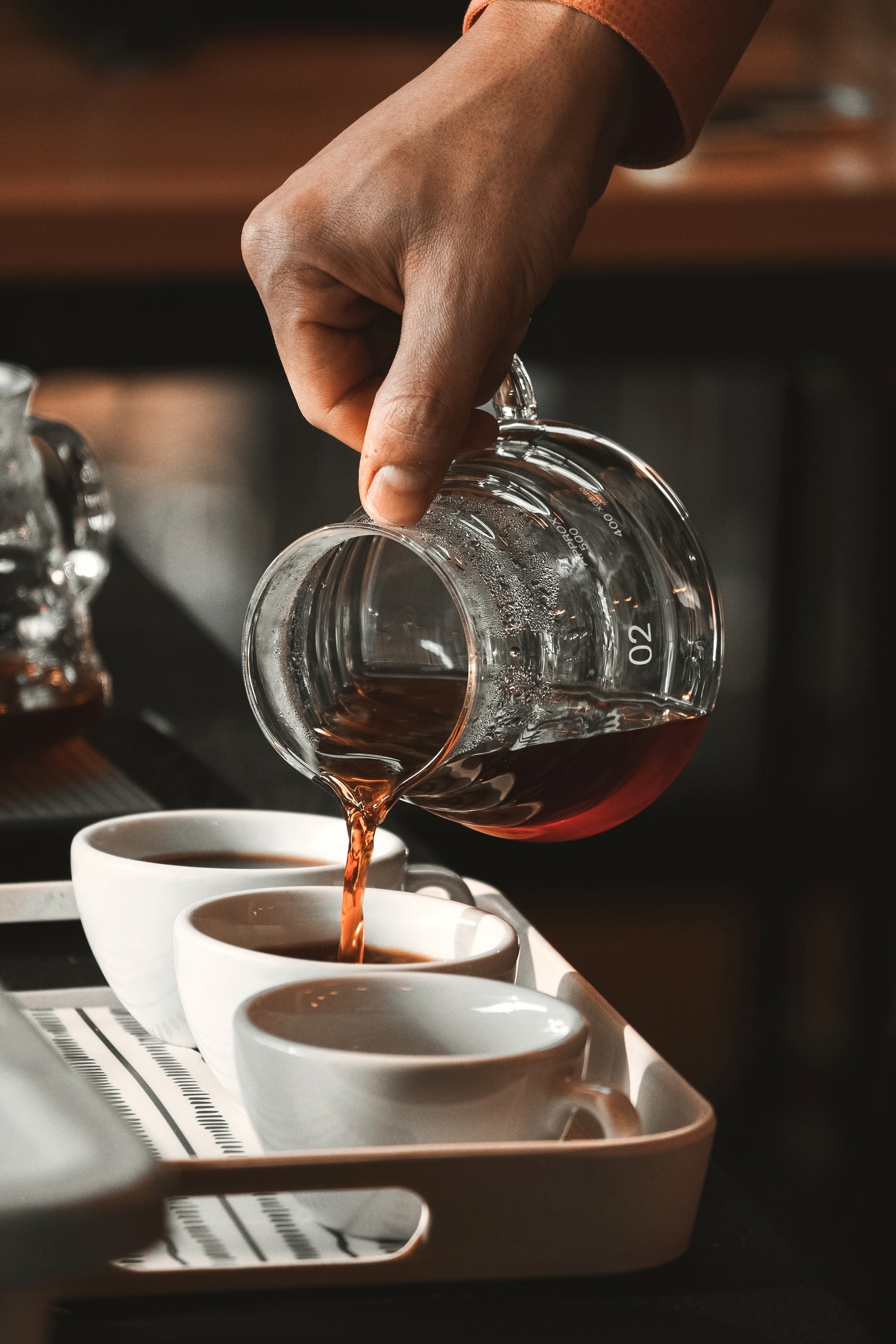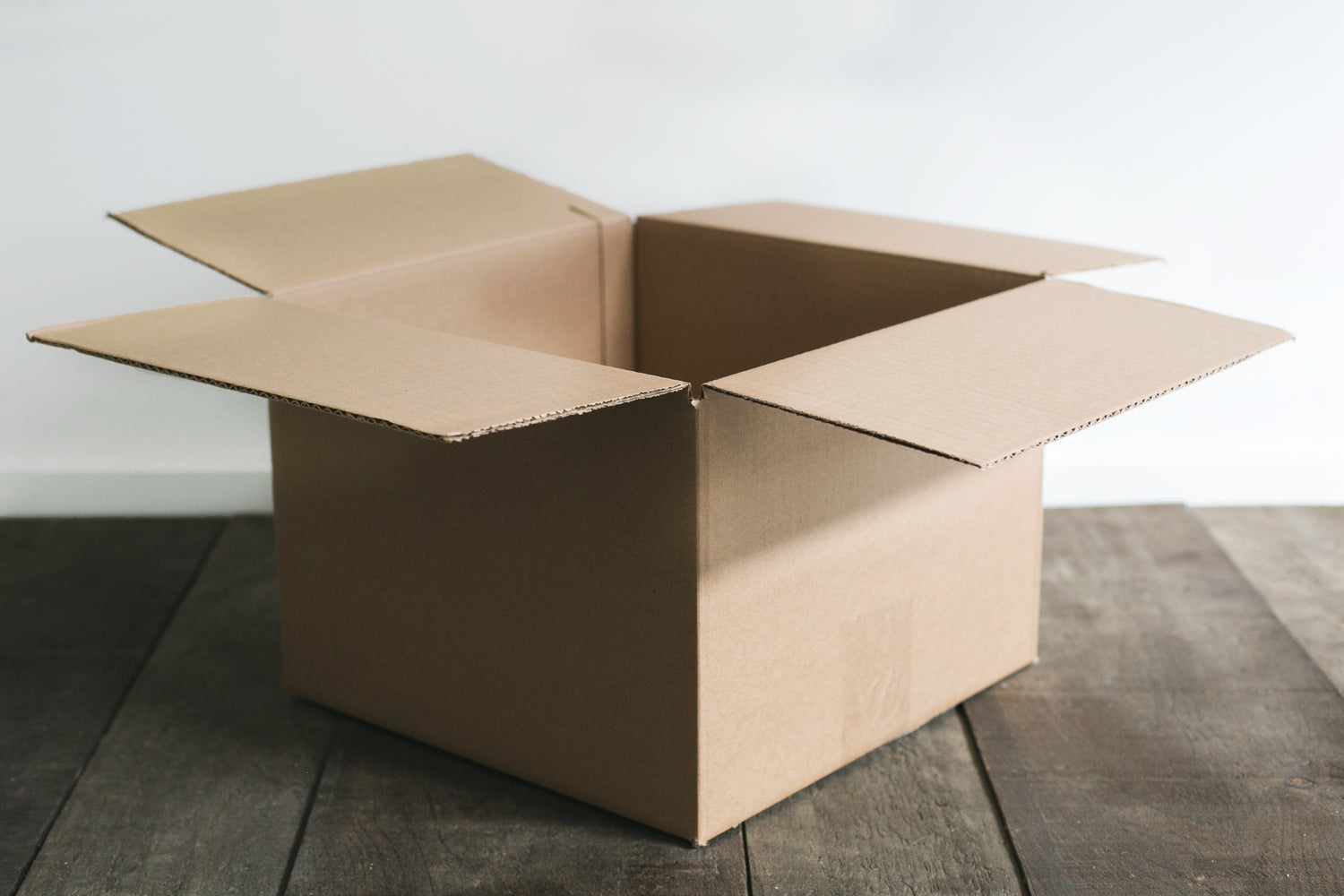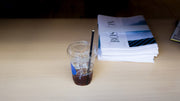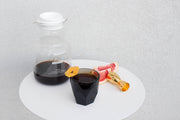2019 Canadian Brewers Cup Comp - Rundown

This year was my first time competing in the Canadian National Brewers Cup competition, and I was so stoked to have had the opportunity, with both Eight Ounce and Phil & Sebastian Coffee Roasters supporting me. If you’re not familiar with the Brewers Cup comp, it’s an event where competitors must brew three filter coffees simultaneously (using the same coffee) and serve them to three judges all while discussing things like the farm, varietal, processing, roasting, and brewing parameters, all within 10 minutes! Think of it as combining a university presentation on coffee with brewing pour overs in an extremely busy cafe! It’s a competition that I’ve always been into but had never had the opportunity to partake in. The Specialty Coffee Association of America (SCA) sanctions competitions - like the most popular Barista comp, to the classic Latte Art comp, and the more modern Coffee in Good Spirits comp, which according to the SCA website, “promotes innovative beverage recipes that showcase coffee and spirits, and highlights the barista/barkeeper’s mixology skills.” These are the crowd pleasers of the SCA comps.
Filter vs spro…
Brewers Cup always seems to take a backseat with less interest from both public and baristas. But that’s OK. It’s a bit niche, sure, but it’s my favourite of them all. Why? Because I mostly brew coffee in this manner, and mostly consume coffee made in this manner. Truth be told, I’m really not into espresso. Shhhh, don’t tell anyone! It was a dark secret I kept to myself during my tenure as a barista! For me, espresso is too strong and volatile, often an assault on the palate, with many difficult-to-control variables, typically made under not-so-ideal conditions. I think there’s a reason why most people drown it in milk. Don’t get me wrong, it can be a delicious beverage when the stars align, like when a very talented barista has an incredible coffee that they brew under scrupulous conditions, like “competition espresso.” Over the years I’ve had the pleasure of tasting some of Canada’s best comp espressos made by heavy hitters like Cole Torode of Rosso, Ben Put of Monogram, and Karine Ng of Phil & Sebastian. Competition coffees are usually very special and these espressos were definitely on another level: well-extracted, complex, sweet, balanced, clean, and creamy. This is an exception to the rule though, and I tend to go with the idea that it’s typically underwhelming when made in most cafes.However, filter coffee is a bit more forgiving, easier to make at home and in cafes, and lasts longer. In a cafe, with a good grinder, decent batch brewer, and great coffee, it’s often delicious. At home, it’s something that you can make in a relaxed manner and enjoy over a long period of time. Filtered coffee is more mellow compared to espresso’s assault on your tongue, and lends itself to more diversity in preparation — there’s a million different filter brew methods and gadgets, some tried and true dating back almost 100 years, others as new as 2018. Simply put, it’s my favourite expression of coffee, and it’s a method that I feel comfortable with, so it only made sense that I would try my hand at Brewers Cup.
Instead of me going over the ins-and-outs of my routine, or discussing the history of the competition, I’ve opted instead to try to inspire you. I would love for a young barista, or even better, a passionate home brewer to read this blog post and somehow come away feeling inspired to also compete. And yes, it’s true — you don’t have to be a barista to do well in this event; you can brew in the comp as an unaffiliated “independent,” meaning homebrewers/coffee geeks who’ve never worked in a cafe. You’ll have a chance at doing well if you’re able to source a decent coffee, come up with a solid presentation and feel competent brewing 3 coffees at once. Though, in reality, no one ever truly feels adequately prepared to brew coffee this way; it’s very awkward and not something you’d normally do at home, or in a cafe— unless your name is Chad Wang. Check out his insane dual-pouring skills WHILE TALKING to judges during the 2017 World Brewers Cup… just incredible! I recommend watching as many routines as you can -- there’s some on YouTube, but also archived Livestreams of previous years Brewers comps can be found with a few clicks. Watch the best performers like Chad, but also watch the middle-of-the-road routines as well-- be a sponge, and try to grab inspiration from all tiers of competitors.

Taste, taste, taste
The coffee is arguably the most important aspect of the comp and I let mine do all the heavy lifting. My advice is to work with your roaster, or on your own, to find a special coffee for the competition. The trend these days is using a geisha varietal, because of its remarkable cup quality and complexity. Personally, I was lucky enough to have Phil & Sebastian provide me with a naturally processed geisha from the Hartmann Farm in Panama. This coffee was stellar and I attribute it with helping me to get as far as I did. You will notice time and time again, competitors on the world stage use naturally processed geishas and there's no secret as to why — their flavour profiles are so bold that it becomes easier to describe. A large part of your scoring is related to how well you can convey flavour descriptors to judges, and with washed coffees having more mellow and subtle notes, it can be difficult to convince judges of their sensory attributes. So what I’m saying is, play the game, play to win, but let the coffee guide you— let the coffee tell the story. And no, you don’t need an expensive geisha to win, you just need a bold coffee that you know intimately and describe it thoroughly. If it tastes better with a high ratio, go with that. If it’s really shining with a higher extraction, go with that.

I chose to use a HARIO V60 because it’s a brew method I use almost everyday at home, so it made sense to go with what I’m most comfortable with. Perhaps for future competitions, I might try something different, but for your first one, I’d recommend following suit. So if you feel very adept with using a Chemex, use one, or if you prefer the Kalita Wave, go with that. You’re already going to be sweating, shaking, stammering, and beside yourself from nerves, so why not go with a familiar brew method that you know inside and out.
Learn
I thought I knew a decent amount about coffee - after having worked in the industry for close to 6 years - but a few weeks into my preparation, I realized I had so many more dots to connect. I realized that I needed more context when it came to farm-level processing, dry-milling, wet-milling, water chemistry, etc. I had to re-adjust, and I had to ask a lot of questions. This was a good thing because it put me in touch with the producers of my coffee, and through Whatsapp, I was able to pick their brains. I’ve always wanted to visit a coffee farm, and I feel as though it would be an invaluable thing to do, to learn about what actually goes on at ground level. This was the next best thing. I’d encourage anyone who is serious about competing to try to contact the producer of your coffee, have an open dialogue with them, and find out as much as you can. Or, if you’re very fortunate, hop on a plane and go visit them. This will change your perspective, I promise you.

Beyond all of the technical aspects, the rules, the judging, the nerves, the practicing, my biggest takeaway was just wow… what a wonderful coffee community we have in Canada! It was amazing to meet all of the competitors from across the country, to share laughs, share advice, and nerd out. We were all in the same boat — stuck in the same practice room at the venue, sharing the same experience of pre-competition nerves, self-doubt and fatigue (I barely slept the whole weekend of the comp). I feel as though the majority of the competitors, myself included, for whatever reason fell more into the spectrum of shy versus super-outgoing. So being put into the spotlight as the center of attention, on a national level with that much pressure, was tough. However, for myself I felt it was important to push my limits and to step outside of my comfort zone. I'm quite certain the other competitors would agree. How else are you going to grow as a coffee professional or serious home brewer? The whole reason I competed was so I could learn more about coffee. It wasn’t to win, it wasn’t to try to beat anyone, it wasn’t driven by ego. It was primarily to challenge myself and to gain more education through the framework of the competition and preparation.
Teamwork
I was lucky to have a team behind me — I had people from Phil & Sebastian, fellow coffee professionals here in Montreal, and of course my wonderful team at Eight Ounce. Competing in Brewers Cup solo would be extremely difficult, and doing well by yourself, maybe impossible. So reach out if you need to — hound people, email them, call them, ask all the questions and most importantly ask for help! Ask people to taste your coffee, get as much feedback as you can. If you know someone who has either previously judged or competed in a Brewers Cup, they will be invaluable for feedback. And if you’re in a position where perhaps you don’t know any baristas and have very few contacts in the industry, email me! I would love to help anyone who wants to compete.
Coming away from the competition, I learned so many things, and I don’t regret all the time and effort I put into preparing. The countless hours of work, all the Ubering back and forth, carrying 10 pounds of gear to my friend’s cafe where I practiced, all the crappy take-out meals I had to eat, and all the agonizing over my speech, all the emails, phone calls, face-time calls, and texts to get feedback from friends, was totally worth it. During one brew session I thought I was going to puke from over-caffeination combined with fatigue. Another session I jumped up and down in excitement when I thought I had a breakthrough in the brew recipe. The next day it didn’t work. You just have to keep going, even after hitting those brick walls. The amount of work you put into it will reflect in your scoresheet, but more importantly, it will manifest in your professional or personal life as a brewer and as a member of the global coffee community. It was humbling overall but I can’t wait to do it again! Hope to see you on the stage too!
ps., I'd be remiss without mentioning that my Phil & Sebastian teammate David Kim -- who took 1st place at the Canadian Brewers Cup competition -- just competed in Boston, at the SCA World Brewers Cup competition. And though he didn't finish in the top 6, we're all incredibly proud of him! Way to go David!
pps., congrats to Cole Torode -- from Rosso Coffee Roasters -- who took 3rd place in the World Barista Championship that also took place in Boston this past weekend. We're all beyond proud of him -- way to represent Canada Cole! Congrats!!





